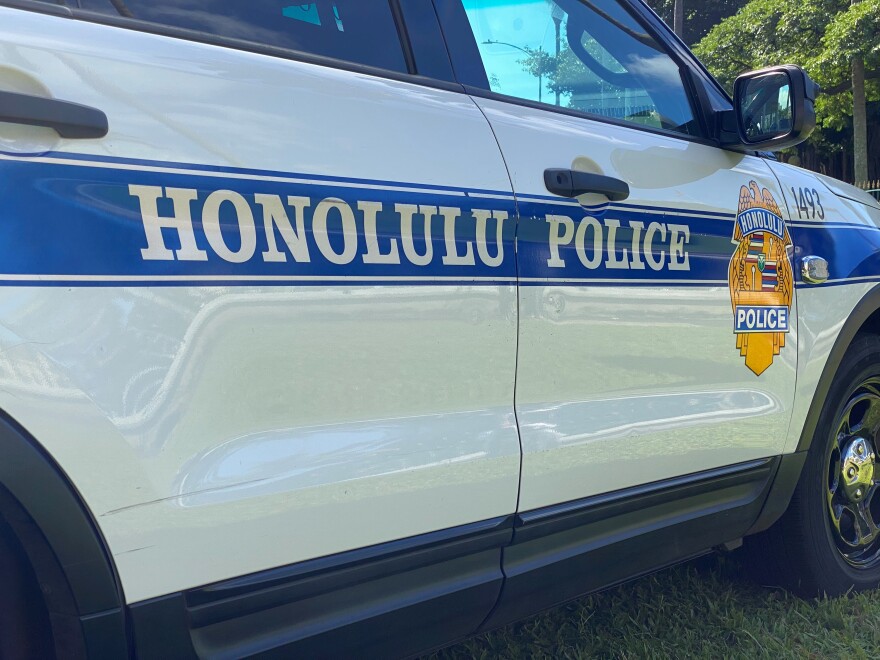Over a five-year period, overtime at the Honolulu Police Department increased nearly 166% from fiscal year 2016 to 2020. But the department's overtime policy is largely inconsistent, a new city audit found.
The “ineffective management of overtime” has allowed for unequal distribution and increased error, abuse and fraud within the system, the audit states.
HPD keeps handwritten timecards that are managed manually for over 2,100 authorized officers, which City Auditor Arushi Kumar called “voluminous and difficult to monitor.”
The "integrity of manual overtime timecards," Kumar writes, is at risk of misinterpretation, alteration, falsification or simply becoming lost.
And that’s exactly what a spot check found.
“Our review revealed that many timecards are missing, timecard details are unclear, and overtime hours may not be logged in the PT&A (pay, time and attendance) system or may be paid without sufficient documentation,” the audit states.
Of 1,327 timecards pulled between FY16 to FY20, the auditor discovered an unsubstantiated $29,982 was paid out to HPD personnel without proper documentation.
“...[We] question the risk of human error that could also result in fraud, waste, or abuse from HPD’s current overtime process,” the audit states.
The department does allocate overtime each fiscal year, but often exceeds its budgeted numbers. In FY20, the department allocated about 170,932 hours — but 433,968 hours of overtime were used.
From a database of overtime worked during those surveyed years, auditors identified the top 10 highest overtime earners.
Combined, they received 76,726 overtime hours, for a total of $4.049 million paid out over five years.
The undisclosed top earner racked in $616,266 for nearly 13,487 overtime hours over the five years. The money did not include the base salary.
In pension liabilities, the top 11 of the highest HPD overtime earners will receive an average of $575,000. That’ll equate to between $5.3 million to $6 million.
Overtime is the primary tool to address shortages caused by special assignments, retirements and low recruitment to meet minimum staffing levels.
But without limits on how much overtime an officer can work, “officer fatigue” is a concern of the auditor, quoting sleep deprivation surveys and a study done by the National Institute of Justice Journal.
The NIJJ study found overworked officers are likely to use more sick leave, use inappropriate use of force, become involved in collisions and have a higher likelihood of dying while working.
Of those top 11 overtime earners, three officers were involved in at-fault motor vehicle collisions and all officers received at least one administrative complaint.
HPD attributed the rise in overtime to increased patrol staffing minimums and high vacancies. But the overtime isn’t covering minimum staffing levels either, the audit found.
To improve overtime policies, auditors recommend standardizing policies and procedures for all districts, using an electronic system and evaluating minimum staffing.
HPD Interim Chief of Police Rade Varnic called the audit “comprehensive and fair” in a May 25 letter to Kumar.
“The reliance upon overtime to accomplish the most basic function of any police department, responding to 911 calls, is an indictment of the failed policies that have brought us to this point,” the State of Hawaiʻi Organization of Police Officers union said in a statement.
SHOPO pointed to years of overtime, lack of recruitment and retention. With new chief Arthur “Joe” Logan stepping into the position, SHOPO offered support.
“HPD is down over 300 officers, and we are hopeful that incoming Chief Logan will work with stakeholders to incentivize officers who are retirement eligible to stay and produce a plan to recruit qualified officers to replace those that do leave,” SHOPO said. “We hope this audit is an impetus to act with a sense of urgency.”
The city auditor’s recommendations are in line with a November 2020 permitted interaction group of the Honolulu Police Commission that reviewed the department’s overtime and restructure of department functions. That report highlighted low staffing levels, high overtime and reports of abuse and high retirement.
Read the full city audit below or click here to open a new tab.






